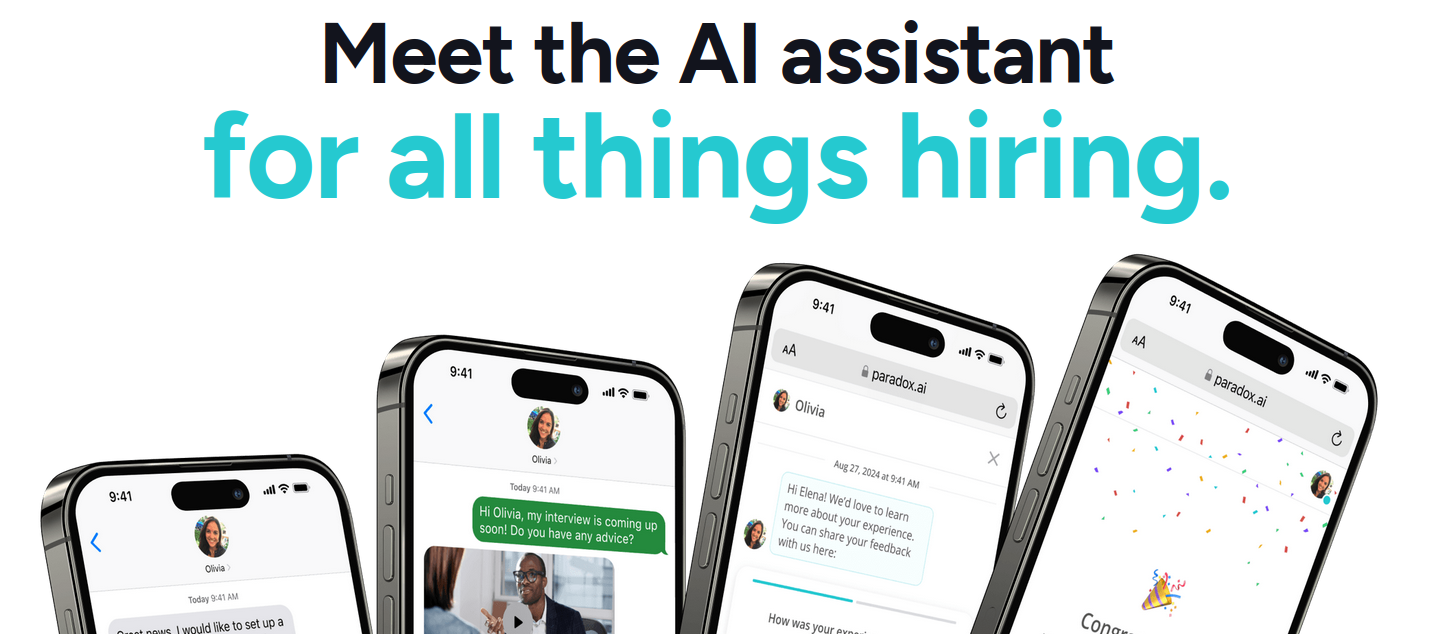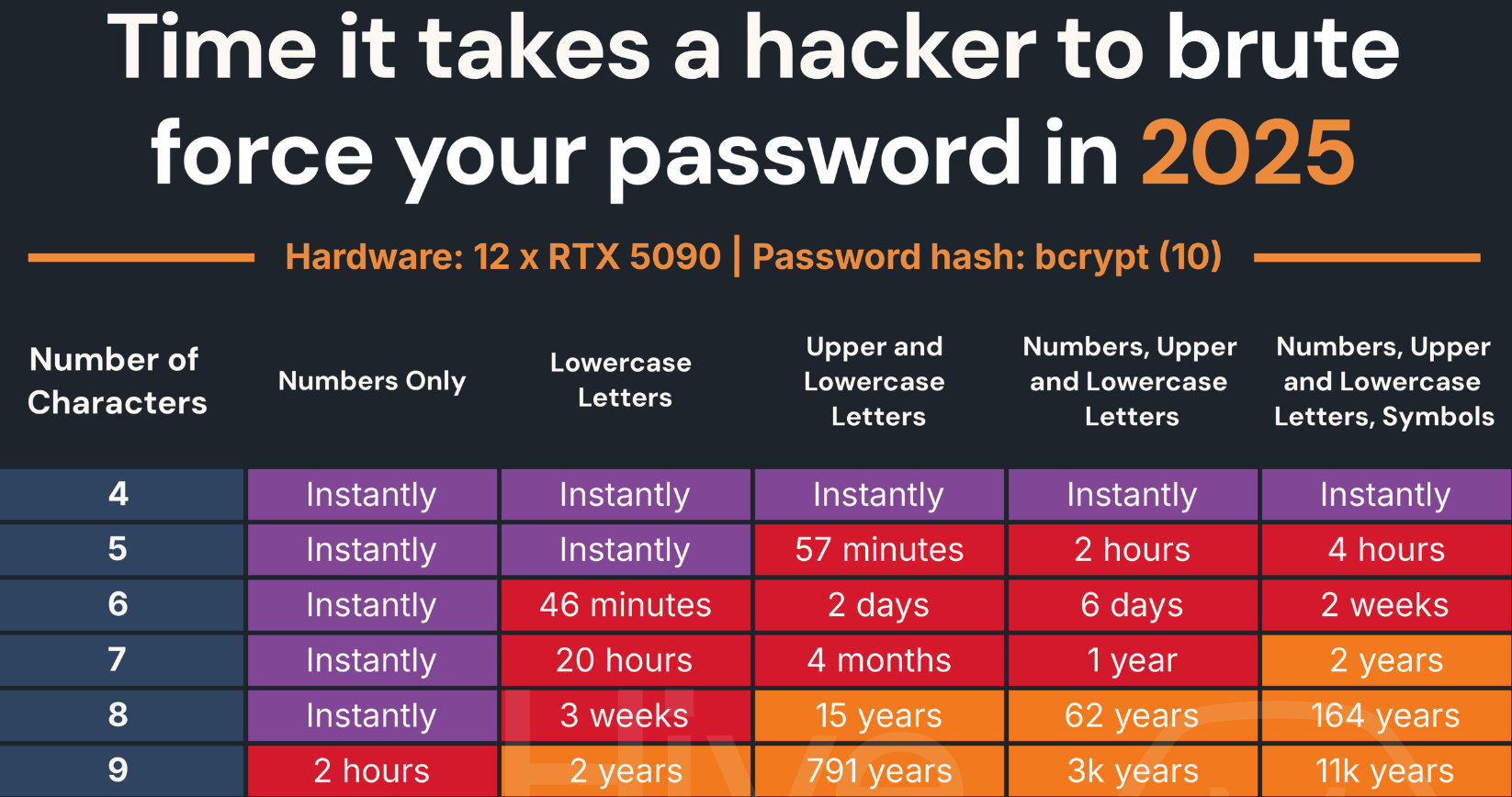—————
Free Secure Email – Transcom Sigma
Boost Inflight Internet
Transcom Hosting
Transcom Premium Domains
News
Sophos announces UAE data center
—————
Free Secure Email – Transcom Sigma
Boost Inflight Internet
Transcom Hosting
Transcom Premium Domains
Sweet 16: Sophos named a Leader (again) in the 2025 Gartner® Magic Quadrant™ for Endpoint Protection Platforms
—————
Free Secure Email – Transcom Sigma
Boost Inflight Internet
Transcom Hosting
Transcom Premium Domains
Another Supply Chain Vulnerability
ProPublica is reporting:
Microsoft is using engineers in China to help maintain the Defense Department’s computer systems—with minimal supervision by U.S. personnel—leaving some of the nation’s most sensitive data vulnerable to hacking from its leading cyber adversary, a ProPublica investigation has found.
The arrangement, which was critical to Microsoft winning the federal government’s cloud computing business a decade ago, relies on U.S. citizens with security clearances to oversee the work and serve as a barrier against espionage and sabotage.
But these workers, known as “digital escorts,” often lack the technical expertise to police foreign engineers with far more advanced skills, ProPublica found. Some are former military personnel with little coding experience who are paid barely more than minimum wage for the work.
This sounds bad, but it’s the way the digital world works. Everything we do is international, deeply international. Making anything US-only is hard, and often infeasible.
EDITED TO ADD: Microsoft has stopped the practice.
—————
Free Secure Email – Transcom Sigma
Boost Inflight Internet
Transcom Hosting
Transcom Premium Domains
Friday Squid Blogging: The Giant Squid Nebula
Beautiful photo.
Difficult to capture, this mysterious, squid-shaped interstellar cloud spans nearly three full moons in planet Earth’s sky. Discovered in 2011 by French astro-imager Nicolas Outters, the Squid Nebula’s bipolar shape is distinguished here by the telltale blue emission from doubly ionized oxygen atoms. Though apparently surrounded by the reddish hydrogen emission region Sh2-129, the true distance and nature of the Squid Nebula have been difficult to determine. Still, one investigation suggests Ou4 really does lie within Sh2-129 some 2,300 light-years away. Consistent with that scenario, the cosmic squid would represent a spectacular outflow of material driven by a triple system of hot, massive stars, cataloged as HR8119, seen near the center of the nebula. If so, this truly giant squid nebula would physically be over 50 light-years across.
—————
Free Secure Email – Transcom Sigma
Boost Inflight Internet
Transcom Hosting
Transcom Premium Domains
New Mobile Phone Forensics Tool
The Chinese have a new tool called Massistant.
- Massistant is the presumed successor to Chinese forensics tool, “MFSocket”, reported in 2019 and attributed to publicly traded cybersecurity company, Meiya Pico.
- The forensics tool works in tandem with a corresponding desktop software.
- Massistant gains access to device GPS location data, SMS messages, images, audio, contacts and phone services.
- Meiya Pico maintains partnerships with domestic and international law enforcement partners, both as a surveillance hardware and software provider, as well as through training programs for law enforcement personnel.
From a news article:
The good news, per Balaam, is that Massistant leaves evidence of its compromise on the seized device, meaning users can potentially identify and delete the malware, either because the hacking tool appears as an app, or can be found and deleted using more sophisticated tools such as the Android Debug Bridge, a command line tool that lets a user connect to a device through their computer.
The bad news is that at the time of installing Massistant, the damage is done, and authorities already have the person’s data.
Slashdot thread.
—————
Free Secure Email – Transcom Sigma
Boost Inflight Internet
Transcom Hosting
Transcom Premium Domains
Security Vulnerabilities in ICEBlock
The ICEBlock tool has vulnerabilities:
The developer of ICEBlock, an iOS app for anonymously reporting sightings of US Immigration and Customs Enforcement (ICE) officials, promises that it “ensures user privacy by storing no personal data.” But that claim has come under scrutiny. ICEBlock creator Joshua Aaron has been accused of making false promises regarding user anonymity and privacy, being “misguided” about the privacy offered by iOS, and of being an Apple fanboy. The issue isn’t what ICEBlock stores. It’s about what it could accidentally reveal through its tight integration with iOS.
—————
Free Secure Email – Transcom Sigma
Boost Inflight Internet
Transcom Hosting
Transcom Premium Domains
Hacking Trains
Seems like an old system system that predates any care about security:
The flaw has to do with the protocol used in a train system known as the End-of-Train and Head-of-Train. A Flashing Rear End Device (FRED), also known as an End-of-Train (EOT) device, is attached to the back of a train and sends data via radio signals to a corresponding device in the locomotive called the Head-of-Train (HOT). Commands can also be sent to the FRED to apply the brakes at the rear of the train.
These devices were first installed in the 1980s as a replacement for caboose cars, and unfortunately, they lack encryption and authentication protocols. Instead, the current system uses data packets sent between the front and back of a train that include a simple BCH checksum to detect errors or interference. But now, the CISA is warning that someone using a software-defined radio could potentially send fake data packets and interfere with train operations.
—————
Free Secure Email – Transcom Sigma
Boost Inflight Internet
Transcom Hosting
Transcom Premium Domains
Microsoft Fix Targets Attacks on SharePoint Zero-Day
On Sunday, July 20, Microsoft Corp. issued an emergency security update for a vulnerability in SharePoint Server that is actively being exploited to compromise vulnerable organizations. The patch comes amid reports that malicious hackers have used the Sharepoint flaw to breach U.S. federal and state agencies, universities, and energy companies.

Image: Shutterstock, by Ascannio.
In an advisory about the SharePoint security hole, a.k.a. CVE-2025-53770, Microsoft said it is aware of active attacks targeting on-premises SharePoint Server customers and exploiting vulnerabilities that were only partially addressed by the July 8, 2025 security update.
The Cybersecurity & Infrastructure Security Agency (CISA) concurred, saying CVE-2025-53770 is a variant on a flaw Microsoft patched earlier this month (CVE-2025-49706). Microsoft notes the weakness applies only to SharePoint Servers that organizations use in-house, and that SharePoint Online and Microsoft 365 are not affected.
The Washington Post reported on Sunday that the U.S. government and partners in Canada and Australia are investigating the hack of SharePoint servers, which provide a platform for sharing and managing documents. The Post reports at least two U.S. federal agencies have seen their servers breached via the SharePoint vulnerability.
According to CISA, attackers exploiting the newly-discovered flaw are retrofitting compromised servers with a backdoor dubbed “ToolShell” that provides unauthenticated, remote access to systems. CISA said ToolShell enables attackers to fully access SharePoint content — including file systems and internal configurations — and execute code over the network.
Researchers at Eye Security said they first spotted large-scale exploitation of the SharePoint flaw on July 18, 2025, and soon found dozens of separate servers compromised by the bug and infected with ToolShell. In a blog post, the researchers said the attacks sought to steal SharePoint server ASP.NET machine keys.
“These keys can be used to facilitate further attacks, even at a later date,” Eye Security warned. “It is critical that affected servers rotate SharePoint server ASP.NET machine keys and restart IIS on all SharePoint servers. Patching alone is not enough. We strongly advise defenders not to wait for a vendor fix before taking action. This threat is already operational and spreading rapidly.”
Microsoft’s advisory says the company has issued updates for SharePoint Server Subscription Edition and SharePoint Server 2019, but that it is still working on updates for supported versions of SharePoint 2019 and SharePoint 2016.
CISA advises vulnerable organizations to enable the anti-malware scan interface (AMSI) in SharePoint, to deploy Microsoft Defender AV on all SharePoint servers, and to disconnect affected products from the public-facing Internet until an official patch is available.
The security firm Rapid7 notes that Microsoft has described CVE-2025-53370 as related to a previous vulnerability — CVE-2025-49704, patched earlier this month — and that CVE-2025-49704 was part of an exploit chain demonstrated at the Pwn2Own hacking competition in May 2025. That exploit chain invoked a second SharePoint weakness — CVE-2025-49706 — which Microsoft unsuccessfully tried to fix in this month’s Patch Tuesday.
Microsoft also has issued a patch for a related SharePoint vulnerability — CVE-2025-53771; Microsoft says there are no signs of active attacks on CVE-2025-53771, and that the patch is to provide more robust protections than the update for CVE-2025-49706.
This is a rapidly developing story. Any updates will be noted with timestamps.
—————
Free Secure Email – Transcom Sigma
Boost Inflight Internet
Transcom Hosting
Transcom Premium Domains
Poor Passwords Tattle on AI Hiring Bot Maker Paradox.ai
Security researchers recently revealed that the personal information of millions of people who applied for jobs at McDonald’s was exposed after they guessed the password (“123456”) for the fast food chain’s account at Paradox.ai, a company that makes artificial intelligence based hiring chatbots used by many Fortune 500 companies. Paradox.ai said the security oversight was an isolated incident that did not affect its other customers, but recent security breaches involving its employees in Vietnam tell a more nuanced story.

A screenshot of the paradox.ai homepage showing its AI hiring chatbot “Olivia” interacting with potential hires.
Earlier this month, security researchers Ian Carroll and Sam Curry wrote about simple methods they found to access the backend of the AI chatbot platform on McHire.com, the McDonald’s website that many of its franchisees use to screen job applicants. As first reported by Wired, the researchers discovered that the weak password used by Paradox exposed 64 million records, including applicants’ names, email addresses and phone numbers.
Paradox.ai acknowledged the researchers’ findings but said the company’s other client instances were not affected, and that no sensitive information — such as Social Security numbers — was exposed.
“We are confident, based on our records, this test account was not accessed by any third party other than the security researchers,” the company wrote in a July 9 blog post. “It had not been logged into since 2019 and frankly, should have been decommissioned. We want to be very clear that while the researchers may have briefly had access to the system containing all chat interactions (NOT job applications), they only viewed and downloaded five chats in total that had candidate information within. Again, at no point was any data leaked online or made public.”
However, a review of stolen password data gathered by multiple breach-tracking services shows that at the end of June 2025, a Paradox.ai administrator in Vietnam suffered a malware compromise on their device that stole usernames and passwords for a variety of internal and third-party online services. The results were not pretty.
The password data from the Paradox.ai developer was stolen by a malware strain known as “Nexus Stealer,” a form grabber and password stealer that is sold on cybercrime forums. The information snarfed by stealers like Nexus is often recovered and indexed by data leak aggregator services like Intelligence X, which reports that the malware on the Paradox.ai developer’s device exposed hundreds of mostly poor and recycled passwords (using the same base password but slightly different characters at the end).
Those purloined credentials show the developer in question at one point used the same seven-digit password to log in to Paradox.ai accounts for a number of Fortune 500 firms listed as customers on the company’s website, including Aramark, Lockheed Martin, Lowes, and Pepsi.
Seven-character passwords, particularly those consisting entirely of numerals, are highly vulnerable to “brute-force” attacks that can try a large number of possible password combinations in quick succession. According to a much-referenced password strength guide maintained by Hive Systems, modern password-cracking systems can work out a seven number password more or less instantly.

Image: hivesystems.com.
In response to questions from KrebsOnSecurity, Paradox.ai confirmed that the password data was recently stolen by a malware infection on the personal device of a longtime Paradox developer based in Vietnam, and said the company was made aware of the compromise shortly after it happened. Paradox maintains that few of the exposed passwords were still valid, and that a majority of them were present on the employee’s personal device only because he had migrated the contents of a password manager from an old computer.
Paradox also pointed out that it has been requiring single sign-on (SSO) authentication since 2020 that enforces multi-factor authentication for its partners. Still, a review of the exposed passwords shows they included the Vietnamese administrator’s credentials to the company’s SSO platform — paradoxai.okta.com. The password for that account ended in 202506 — possibly a reference to the month of June 2025 — and the digital cookie left behind after a successful Okta login with those credentials says it was valid until December 2025.
Also exposed were the administrator’s credentials and authentication cookies for an account at Atlassian, a platform made for software development and project management. The expiration date for that authentication token likewise was December 2025.
Infostealer infections are among the leading causes of data breaches and ransomware attacks today, and they result in the theft of stored passwords and any credentials the victim types into a browser. Most infostealer malware also will siphon authentication cookies stored on the victim’s device, and depending on how those tokens are configured thieves may be able to use them to bypass login prompts and/or multi-factor authentication.
Quite often these infostealer infections will open a backdoor on the victim’s device that allows attackers to access the infected machine remotely. Indeed, it appears that remote access to the Paradox administrator’s compromised device was offered for sale recently.
In February 2019, Paradox.ai announced it had successfully completed audits for two fairly comprehensive security standards (ISO 27001 and SOC 2 Type II). Meanwhile, the company’s security disclosure this month says the test account with the atrocious 123456 username and password was last accessed in 2019, but somehow missed in their annual penetration tests. So how did it manage to pass such stringent security audits with these practices in place?
Paradox.ai told KrebsOnSecurity that at the time of the 2019 audit, the company’s various contractors were not held to the same security standards the company practices internally. Paradox emphasized that this has changed, and that it has updated its security and password requirements multiple times since then.
It is unclear how the Paradox developer in Vietnam infected his computer with malware, but a closer review finds a Windows device for another Paradox.ai employee from Vietnam was compromised by similar data-stealing malware at the end of 2024 (that compromise included the victim’s GitHub credentials). In the case of both employees, the stolen credential data includes Web browser logs that indicate the victims repeatedly downloaded pirated movies and television shows, which are often bundled with malware disguised as a video codec needed to view the pirated content.
—————
Free Secure Email – Transcom Sigma
Boost Inflight Internet
Transcom Hosting
Transcom Premium Domains